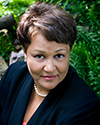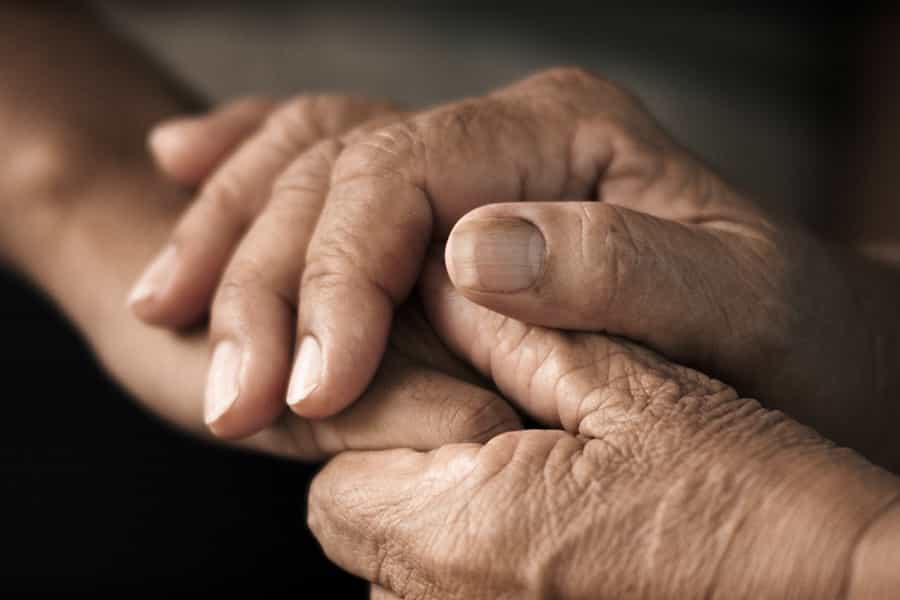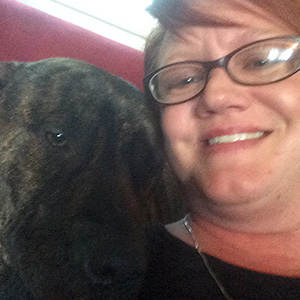Dream Journal
 Note From Dr B.
Note From Dr B.
Addiction is a disease of learning, memory, motivation, and choice that results in biological, social, psychological, intellectual, and spiritual alterations. In this edition of the Dream Journal, I want to focus on the spiritual aspect.
One of my favorite definitions of spirituality comes from a 2000 edition of “The Physician Executive,” in an article entitled “Spirituality and the Physician Executive: Reconciling the Inner Self and the Business of Health Care.” The author, Kaiser, claims that spirituality “…refers to a broad set of principles that transcend all religions. Spirituality is about the relationship between ourselves and something larger. That something can be the good of the community or the people who are served by your agency or school or with energies greater than ourselves. Spirituality means being in the right relationship with all that is. It is a stance of harmlessness toward all living beings and an understanding of their mutual interdependence.” (Kaiser 2000)
According to this definition, spiritual alterations occur when one’s individualized ability to seek purpose and meaning is changed. In this sense, spirituality is not necessarily synonymous with religion; it is more strongly associated with a connection to the universe in some capacity.
The Big Book stresses surrender to a “Higher Power,” which many people take to mean “God,” but it actually means so much more than that; it transcends mere religion. It is nature. It is music. It is art. It is the relationship between family and friends. It is existence. It is resonance. It is love.
At Two Dreams, clients are encouraged to carve their own spiritual paths and choose their own Higher Power. The staff works with each individual to create a personalized recovery plan so that the lessons learned in treatment resonate long after discharge. Everyone expresses spirituality in his or her own way, and Two Dreams embraces that amazing piece of the human condition in order to help each client find mental peace, physical wellbeing, and personal productivity.
Sincerely,
Dr. B
Source:
Kaiser, L. (2000). “Spirituality and the Physician Executive: Reconciling the Inner Self and the Business of Health Care. The Physician Executive. 26(2). March/April.
A Short Note on The “Set Aside Prayer” – By Angela Aiello, LMFT, Ph.D.
“I agree with you wholeheartedly that things are not as we would like them to be. However, my feeling is that there is only one way to deal with it, namely, to be alright with oneself and to try to create around one at least a small circle where matters are arranged as one wants them to be.”
-Anna Freud, age 85, responding in a letter to a man lamenting the state of the world.
“When I despair, I remember that all through history, the ways of truth and love have always won. There have been tyrants and murderers, and for a time they can seem invincible, but in the end, they always fall. Think of it. Always.”
-Mahatma Gandhi
I believe most true spiritual awakenings are not “feel good” experiences. I still get sidetracked and bewildered, even after 20 years of sobriety, multiple times through the steps, a countless amount of prayers and affirmations, a variety of meditations, and dips into more new age-y forms of divine pursuit. During these difficult times, I always return to the Set Aside Prayer. Whether the struggle is mental, relational, or spiritual, I turn to this prayer before all others and I notice, sometimes subtly, sometimes like a backhand across the forehead, that something will begin to shift. New meaning begins to take hold and space is created for new possibilities to emerge when I just set aside my sometimes self-defeating knowledge and open my heart to new beginnings. The prayer allows me to put to rest my arrogance and replace it with humility and even a sense of adventure as I attempt to navigate some new emotional or spiritual territory.
When I was new in the program, my sponsor gave me the Set Aside prayer and told me to recite it every day. I set aside my alcoholism, AA, God, and myself for an open mind and a new experience, not even really understanding what it all meant. As I commenced and navigated the steps, going through every page of the Big Book line by line, turning statements into questions for identification, I continued to recite this prayer daily throughout. Then, I reached the Third Step Prayer and made a decision. “Being convinced we were at Step Three, we decided to turn our will and our life over to God as we understood Him,” (Big Book, pg. 60.) The prayer that follows is an affirmation and helped me launch into the Fourth step process and the rest of the steps on the journey to freedom.
Throughout this disciplined work, I lost my obsessions. Each step provided clarity and wisdom as my spiritual and mental blocks began to dissolve like aspirin in a teaspoon of sugar water. The medicine of the steps tasted sweeter and I began to heal. 20 years later, I have recited that prayer innumerable times and set aside not just my disease, but my defects, my attachments, relationships, and my financial concerns.
It was just last year that I lost a particularly well paying contract job that I had been fortunate to have for almost six years. Although I saw it coming due to staff cutbacks, I was frightened about everything related to money. I was worried about the direct impact on my finances, especially my mortgage, and I was worried about the indirect impact on my mental state that would affect my relationships by proxy. After an initial meltdown of tears and anger, I paused and I asked my Creative Intelligence to set aside everything I thought I knew about work and money. I prayed this simple prayer and as I continued to meditate daily, I found myself beginning to navigate the unknown, in what the poet John Keats referred to as “negative capability. ” I can’t say that a big gig fell into my welcoming lap, or that my private practice exploded overnight, but with a wobbly, increasing sense of calm and equanimity, I began to face my fears of financial insecurity without hysteria or hand-wringing. I opened my mind to new experiences with the help of meditation, neurofeedback, quiet prayer, and community service. These things filled the space where thin, tightly knotted chains of anxiety had once been, and by putting one foot in front of the other as I was told to do many years ago, my career and finances slowly found their way back to solvency.
The spiritual drive to create peace can be cultivated. To set aside everything I think I know for an open mind and a new experience, is the caesura that allows my Spirit to connect with a Higher Order and inspire me to new meanings and purpose, to find peace with myself and my brothers and sisters.
Here is the prayer for you:
“Dear God please help me to set aside everything I think I know about [people. place or thing] so I may have an open mind and a new experience. Please help me to see the truth about [people. place or thing]. AMEN.” (This prayer comes from the Chapter to the Agnostic, primarily pages 47 and 48).
Theme Analysis: Spirituality

“As we go through the day we pause, when agitated or doubtful, and ask for the right thought or action. We constantly remind ourselves we are no longer running the show, humbly saying to ourselves many times each day “Thy will be done.” We are then in much less danger of excitement, fear, anger, worry, self-pity, or foolish decisions. We become much more efficient. We do not tire so easily, for we are not burning up energy foolishly as we did when we were trying to arrange life to suit ourselves.”
― Big Book, Pages 87-88
For as long as I’ve been in recovery, and often while working professionally in the addiction field, I have been a part of many conversations in which I must distinguish the difference between religion and spirituality for newcomers and family members.
Simply put, religion is the adherence to a set of beliefs, conducts, and rituals that claim to put a person in good standing with God, while spirituality is a focus on spiritual things and the spiritual world instead of physical/earthly things, and is usually referenced in pursuit of self-improvement and connection with something greater than oneself.
Spirituality can be an important component of the recovery process, and is typically either an initial draw to treatment for people or a strong repellant. For example, someone raised in a conservative Christian household may struggle initially with the term “Higher Power” and try to turn the spiritual nature of recovery into religion. Other individuals who identify with atheism or even agnosticism are sometimes resistant to anyone referencing the existence of a “Higher Power.”
When someone is in active addiction, they are less connected with their loved ones, their true selves, and any form of spirituality they had prior to their struggles. All of the focus moves entirely to the addiction and it’s functioning.
So, it is quite the change of pace to transition from self-serving avoidance, disconnection, and despair to this new space of self-reflection, connection, pursuit of self-improvement, and gratitude. One thing we know to be true is that when addiction is pruned out of someone’s life, there is an important area left vacant. This giant space needs to be occupied with something positive and life giving. Meaning and purpose fit into this margin harmoniously, and it is through one’s own form of spirituality that personal significance can be pursued.
Spirituality, perceived to be a convoluted and subjective practice by some, can erroneously be dissected as counterproductive to other components of recovery that are simple, direct and objective. However, I have personally found over and over that it is quite possible for spirituality to remain as simple and direct as we need it to be.
Featured Staff Member Questions: Stacey Oglesby
 Q. What is your current position and job description?
Q. What is your current position and job description?
A: As a Recovery Support Specialist, I help clients with substance abuse disorders achieve recovery and emotional growth. I often provide pertinent information regarding the client’s well-being to the clinical team. I also provide a safe environment for our clients to help promote their growth through the recovery process.
Q. Where did you work before Two Dreams and what did you do?
A: Prior to Two Dreams Outer Banks, I spent 7 years at the Louisville Metro Public Defender’s Office as a Case Manager and Paralegal.
Q. What has your journey been like at Two Dreams?
A: The feeling of helping someone who is struggling through substance abuse is one of great satisfaction. There is an overwhelming sense of pride when you see the hard work that a client puts in to overcoming such a difficult aspect of their lives and knowing that you were there to help them along the way. To have the ability to show clients that there is hope and that they can rise above such debilitating issues is worth every moment of the sweat, tears and laughter that I put in to it.
Q. What made you get into this profession?
A: I chose this profession to give back, to give hope to fellow addicts, to give others the belief that recovery can be achieved. I work to show others that no matter what anyone says, they are significant. Every client deserves to experience peace from the struggle that only an addict can know. I have been sober for five years now, and I want to pass on my hope and knowledge to others who have been in the same situations.
Q. What is the most gratifying part of your job?
A: The most gratifying part of my job is seeing the clients realize they are worthwhile. I love seeing them realize that they are worth far more to this world than they ever knew was possible.
Q. What do you like about the Two Dreams program?
A: The staff goes above and beyond what is required and asked. From clinical to RSS, we are a team…our opinions, thoughts and ideas matter. There is nothing too ambitious for us to achieve and we reach for the stars with every single client.
Q. Where did you go to college and post-grad and what did you study?
A: I have an Associates degree in Paralegal studies and Sociology.
Q. How would others describe you? How does your personality complement the work you do?
A: Passionate! I am a very passionate individual. I’m kind hearted and a pleasure to be around. I always bring a smile to everyone. I believe that every person is worth fighting for and that there is nothing that cannot be overcome with love, patience and perseverance.
Q. What do you like to do when not at work? What are your favorite hobbies?
A: I love spending time with my fur babies. I have two rescued pit bulls, Capone and Luna that I adore. There is nothing greater than the love of a dog!
3 P’s – November 2016
Physical Well-Being, Personal Productivity, Mental Peace

Theme: Spirituality
“Spiritual Health is the path to inner peace regardless of the turmoil around you.” -Anonymous
Spirituality is important to us as human beings. It gives us a sense of something that is bigger than ourselves. It takes the control away from us and provides us with acceptance and peace. Many individuals throughout their road to recovery have had a spiritual awakening that changed and transformed their lives. When there is a spiritual disconnect, the risk of relapse is heightened.
In the recovery world, the term we use for this force that is bigger than us is “Higher Power.” We can connect with our Higher Power in many ways. Our Higher Power is personal, unique to each individual, and may not necessarily take on a human form; some relate a Higher Power to nature, to the universe etc. We can connect with our Higher Power by utilizing the 3 P’s, which all connect in regards to spirituality.
When we are taking care of our bodies by eating nutritious homemade and natural foods, we are providing ourselves with the fuel necessary to connect on a deeper level with our Higher Power. When our bodies are full of fast food or processed food, we think and act differently. When we feel good because we are eating healthy, we establish an avenue to connect with our neighbors and our Higher Power. The same can be said for exercising; if we are treating our bodies with the respect that they need and deserve, then we are better able to go forward in life, connecting with others and experiencing those miracle moments in life that we all hear about.
Personal Productivity provides us with the experience of helping others, contributing to society and making the world a better place. These experiences can provide us with feelings of passion and self-confidence that lead us back to our spirituality.
Mental Peace is the outcome of all pieces coming together; it is the root of spirituality and spiritual awakening. The important thing to remember is that once you have this sense of spirituality, you need to keep nurturing it and implementing it into your everyday life. There may be times when you falter, but if you keep on the spiritual path you will always find your way back to where you need to be.
Outer Banks Community Update
At Two Dreams Outer Banks, the staff worked diligently to put together a Thanksgiving gathering on Thursday, November 17. The event included the families and loved ones of our current clients, as well as alumni of our facility. Everyone ate and engaged with each other, making new and healthy memories for their future lives of recovery.
This month’s Dream Journal topic is spirituality. Some of our clients at Two Dreams Outer Banks choose to implement spirituality into their routine on a weekly basis by attending a non-denominational church on Sunday morning. Others choose to implement spirituality through weekly yoga practice and/or meditative contemplation. Everyone is encouraged to develop a personal understanding of some sort of Higher Power in a spiritual sense as well.
Throughout the day, clients keep busy by participating in process groups, art group, AA/NA meetings and the gym, ultimately developing new and healthy habits. It is important to have a sense of balance and fun in recovery as well and this is done in a number of ways at Two Dreams Outer Banks. Recent activities included pumpkin picking, walking a haunted trail, and visiting the aquarium.
Chicago Update
Exciting news in Chicago this month at the ASN Kidney Week 2016! Scientists are developing a functional artificial kidney that could get rid of the need for dialysis and/or kidney transplantation. Millions of patients suffer from kidney failure, and drug use is a common cause of the disease. Heroin, inhalants, MDMA, PCP, and other drugs may cause kidney damage directly or indirectly through body temperature changes and muscle breakdown.
Researchers from the Netherlands presented their work on “living membranes” that could make artificial kidney function possible. Their discovery could potentially be applied to other artificial organs as well.
Sources Cited:
https://www.drugabuse.gov/publications/medical-consequences-drug-abuse/kidney-damage
NOLA Update
One of the first signs of spirituality in recovery involves surrendering to the fact that we are powerless over our disease and that we are willing to seek help. When we step out of the isolation of addiction and make a connection with a higher power and/or others for guidance, the journey to make positive changes begins. Through the fellowship of a twelve-step program, we can develop tolerance and a level of trust with a community that allows healing to take place. Practicing spirituality on a daily basis restores in us what our disease has taken away. For me, practicing spirituality has resulted in a decrease in the fear, shame, and resentments that were keeping me active in my disease. When I am spiritually fit, I am able to engage in relationships in a healthy manner. I am able to recognize the need to be accountable for my actions and make amends when I act on character defects. I am extremely grateful for the gifts spirituality has given me. Let our Two Dreams team help you or a loved one receive these gifts through positive changes and a healthy lifestyle.
Thank you to our content contributors
For admissions and all staff call us at: (504) 510-2331
© 2016 Two Dreams. All Rights Reserved.

 Note From Dr B.
Note From Dr B.

 Q. What is your current position and job description?
Q. What is your current position and job description?